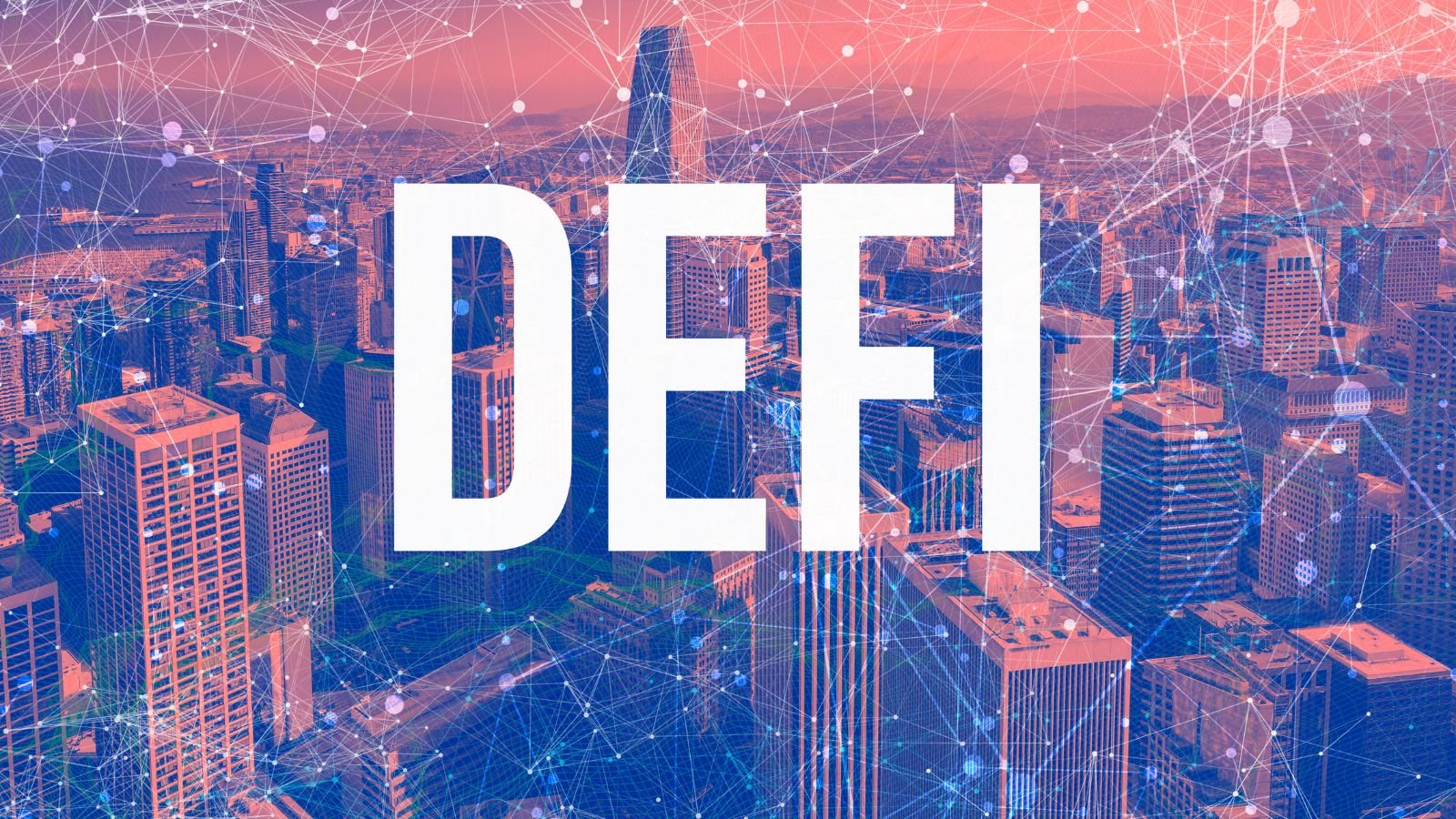Significance of Blockchain and Crypto in Fintech Apps
Blockchain technology and cryptocurrencies are becoming more and more popular. Many institutions across Europe and North America began investigating the technology and its potential in 2018. Globally, $552 million was invested in blockchain initiatives by financial institutions, including investment in cryptocurrencies.
So, what precisely is this technology, and how will blockchain usage alter the landscape of banking and finance?
As information technology has advanced so dramatically over the past several decades, our world now has a robust IT infrastructure that spans all continents and nations, enabling us to take advantage of high-speed internet to streamline and enhance financial operations using digital transformation solutions.
The fintech revolution is roaring as clients increasingly select blockchain-powered cryptocurrency transactions to expedite their payment and transaction processes, despite the industry's acceptance by centralized financial institutions still being in its infancy.
With Blockchain technology and decentralized Cryptocurrencies, fintech businesses can now narrow their attention and concentrate on their goal of giving their customers competitive and efficient financial services faster and more securely.
Cryptocurrencies have not been widely accepted by consumers. Yet, they are rapidly becoming a crucial part of the financial ecosystem. Cryptocurrencies seem to be the perfect answer for nations without a stable currency like El Salvador. Yet, depending excessively on the value of cryptocurrencies rather than fiat money may be hazardous, given their speculative character.
Although several nations have prohibited or restricted the use of cryptocurrencies, their widespread use might make existing institutions obsolete and even cause people to lose trust in the value of their paper money. Yet, cryptocurrencies offer substantial value to fintech organizations.
Optimizing Fintech with Blockchain Technology
Despite receiving several technological integrations and developments, the banking sector still employs a centralized paradigm, with financial institutions and governments acting as its hub.
Blockchain development services offer a more open response to this skepticism. The environment of fintech, which has developed as a tech-based upheaval in the financial industry, now has a new dimension thanks to technology. Fintech has significantly altered company models and operational procedures, giving the fintech sector immense potential.
Due to this, the fintech sector's startups and financial application development firms have both expressed interest in learning more about the use of blockchain.
Let's move on to the fintech issues that this cryptocurrency-related technology has solved.
Challenges in the Fintech Industry That Blockchain Addresses
In the fintech sector, problems including missed revenue objectives, protracted fund-raising cycles, and rising losses are frequent, and they frequently result from poor management.
The list of issues that blockchain technology can resolve in the fintech sector is as follows:
1. Reliance on a centralized system
Fintech solutions may have seemed convenient, but true power has always been held by outside parties. Users continue to wait for confirmation in their favor while the transactions are still only accepted by higher authorities.
With the introduction of blockchain in fintech as a component of the best digital transformation services, the first problem has been overcome.
2. Lack of credibility
Users of fintech applications are unaware of what is occurring on the other side when they take any action on the application. This leads to a lot of misunderstanding and increases the risk of identity theft, which decreases faith in the process overall.
This financial problem is solved by blockchain application development services, thanks to their transparency and immutability features.
3. Slower operations
Blockchain is necessary for fintech because numerous third parties' involvement in the procedures frequently causes delays.
In the end, this causes lower customer satisfaction levels and more turbulence in the commercial environment.
4. Increased operating expenses
When it comes to fintech, time is money.
So, blockchain technology has once again shown to be one of the fintech innovations that may lower the cost by over 50% by removing the dependence on numerous individuals, making the process public to all, and shortening the time required.
Real Use Cases of Blockchain Technology in Fintech
The use of blockchain in actual financial services is widespread.
For several reasons, including the ones listed below, fintech businesses are embracing this new trend.
1. Reduces transactional expenses
There are several factors to consider while discussing online purchases. A procedure can be slowed down and have additional costs added by using trade platforms, transfer channels, and other middlemen. Costs increased considerably when doing business internationally.
Blockchains allow for direct peer-to-peer (P2P) internet transactions, doing away with middlemen and their associated fees.
Online payment delays are also eliminated by the decentralized method. Its real-time data updating function also guarantees seamless, error-free operations and avoids additional fees or lost investments.
2. Addresses the issue of identity theft
Under enhanced regulation, banks and fintech companies are forced to establish Know-Your-Client (KYC) and anti-money laundering measures.
As a result, financial institutions are becoming increasingly willing to use a blockchain-based system. The user just must provide identification once under this system.
A verification document is then supplied to them, which they may use to make transactions from anywhere on the globe.
3. Allows global choices for payments
The blockchain network runs totally over the internet and doesn't require any special configuration to function.
Users may now conduct transactions from anywhere on the globe using their account's public and private keys, thanks to the digitalization of assets.
Its internet-centric architecture also makes it adaptable for cross-border exchanges of virtual money like cryptocurrency.
4. Heightened regulations
The decentralized architecture used by blockchain apps always produces new storage spaces for new actions but never tampers with the existing blocks. Moreover, it keeps a permanent record of every transaction involving your blockchain.
The system also stores the trade's original document, which users may access at any time.
Also, blockchain offers all data and analytical reports in a single location, which is advantageous for audits. The time and expense needed for verification and accounting are reduced by its intelligent, read-only nodes.
5. Lending as a means of increasing income or investing
Blockchain-based technologies can be used to connect investors with specific borrowers.
The use of technology makes it possible to automate debt management and execution, create contracts with clear conditions for both parties and transfer assets.
Blockchain reduces risks on both sides and provides a chance to borrowers and investors who are left out of the traditional financial system.
6. Auditing
It is a procedure that checks records and points out any discrepancies. The procedure is slow in addition to being complicated.
Blockchain, though, makes the procedure simpler.
With the aid of technology, you may request that your partnered blockchain application development firm add the record straight to the ledger, providing a quick and effective way to update and look at the data.
7. New crowdfunding models
The goal of the crowdfunding process is to raise money by asking a lot of people, typically online, for a small amount of cash.
Blockchain, through ICO, IEO, and other ways makes the whole process of fundraising public and a lot faster compared to the old financing models.
8. Trading of financial instruments
Although they are good financial options, cryptocurrencies and NFTs are not the focus of this discussion. Private sector public blockchains have been transforming the exchange of financial assets for years.
The method requires authorization, audit trials, accessibility, and access for numerous pre-verified jobs, such as financial advisors or brokers.
To finish all of it, each unit takes part in the procedure independently. The blockchain is a digital environment where these companies may communicate while maintaining total accountability and action transparency.
Digital transformation strategies for financial clearing services include a greater than 50% decrease in time and error.
Advantages of Blockchain in Finance
Blockchain-based inclusive, open, and secure corporate networks allow for the quick issuance of digital securities at reduced unit costs and with more customization.
The following advantages of blockchain technology in finance have emerged in recent years as it has developed:
1. Transparency
The protocol, mutualized norms, and shared procedures used by blockchain technology serve as a single source of growth for all network users. Faster processing optimizes client experience while enhancing data integrity and that’s why it is an integral part of the top digital transformation solutions.
2. Security
The use of blockchain in finance has made it feasible to develop secure application code that is specially made to be impenetrable to malevolent parties and outsiders, making it nearly hard to modify or hack.
3. Trust
It is simpler for different parties in a corporate network to handle data collaboration, come to agreements, and use the immutable and transparent ledger. Blockchain is a distributed ledger technology used to securely manage, record, store, and transmit transactions across a wide range of industries.
4. Privacy
Blockchain in finance provides industry-leading capabilities for data privacy across the various software stack layers, enabling the network of businesses to share data only when it is necessary. This increases openness and transparency while preserving privacy and secrecy.
5. Programmability
It facilitates the development and execution of smart contracts, which automates business logic in a deterministic and tamper-proof manner to improve programmability, efficiency, and confidence.
6. Efficiency and scalability
The hybrid and private networks that make up blockchain in finance are designed expressly to support hundreds of transactions per second. It completely facilitates the integration of public and private transformation, giving companies a significant amount of resilience and worldwide reach.
How can TransformHub Help?
A revolution sparked by the development of blockchain technology will help get rid of some of the drawbacks of conventional banking.
It will allow everyone to now have access to financial services, making it possible for underdeveloped, struggling economies, and financially excluded nations to become financially integrated.
Got a fantastic idea for a fintech app?
TransformHub, one of the best digital transformation companies in Singapore, serves as your secure financial app partner.
We are excited to leverage innovative, future-proof technology like blockchain to enhance your customers' experience, increase your efficiency, and soar your business success.
Act immediately if you are a fintech-based firm and are still debating whether the moment is right to lay the groundwork for the tokenization of the banking sector.
To explore the possibilities and needs of digitally transforming your business, get in touch with our fintech professionals at the best digital transformation company who take complete accountability to deliver precisely tailored solutions according to your business requirements.
Share this
You May Also Like
These Related Stories

FinTech Innovations Impacting the Consumer Experience
.jpg)
Fintech Innovations in Cross-Border Payments




